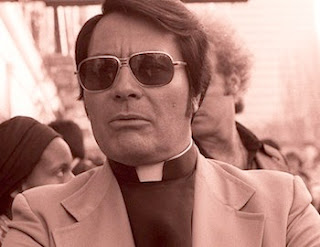We have told you about business magnate, George Lindemann Jr., previously. Recently, the Miami Herald carried a story which said George Lindemann Jr foresees crash, and the wording of that made me start thinking about how difficult it can be to distinguish between perception and bonafide precognition.
Obviously, Lindemann is something of a business genius, whether or not he possesses any special quality(s) which set him apart that lay above and beyond the normal ken of his fellow businessmen. But the use of words like "foresee" generally insinuate some sort of divinatory forces at work and are often used to connote distrust on the part of the writer.
While it's true that a lot of people do not necessarily believe in the paranormal, I don't like it when they connect the two in such a manner. Lindemann's "foreseeing" of a crash has far more to do with his business acumen and nothing at all to do with any sort of precognitive powers, but the headline reads as though he is some second-rate circus act making predictions from a roadside tent.
What gets me most about these shoddily-worded articles is that, regardless of whether it is an accomplished business tycoon or an actual roadside soothsayer making said "predictions," if it turns out to be right, there is almost never a follow-up article crediting the predictor. In the case of the business magnate, there might be a mention of his "prediction," but the paper will downplay it because they know they originally worded the article to cast doubt on the matter and they don't want to draw attention to that fact.
Funny world, hrm?


No comments:
Post a Comment